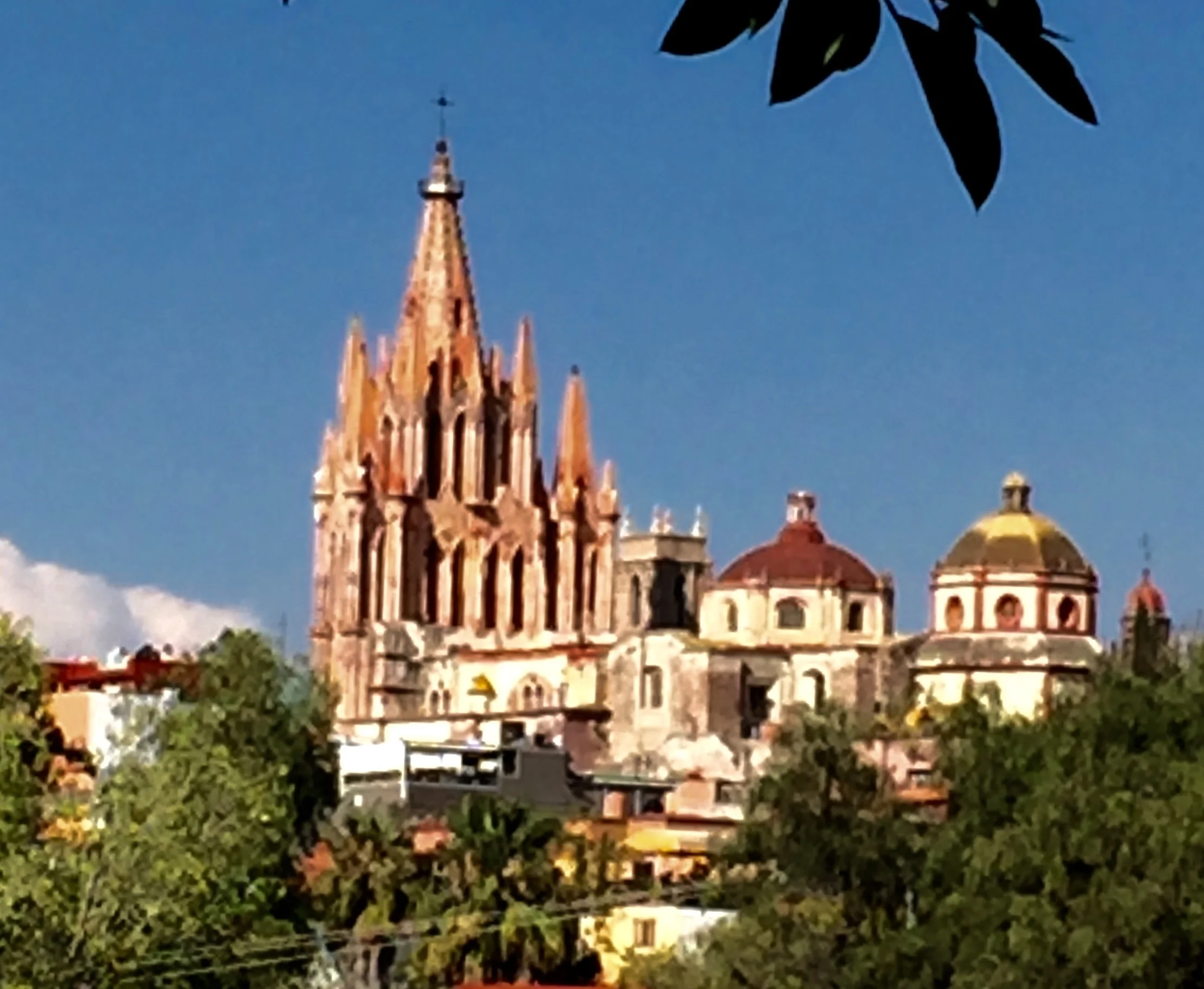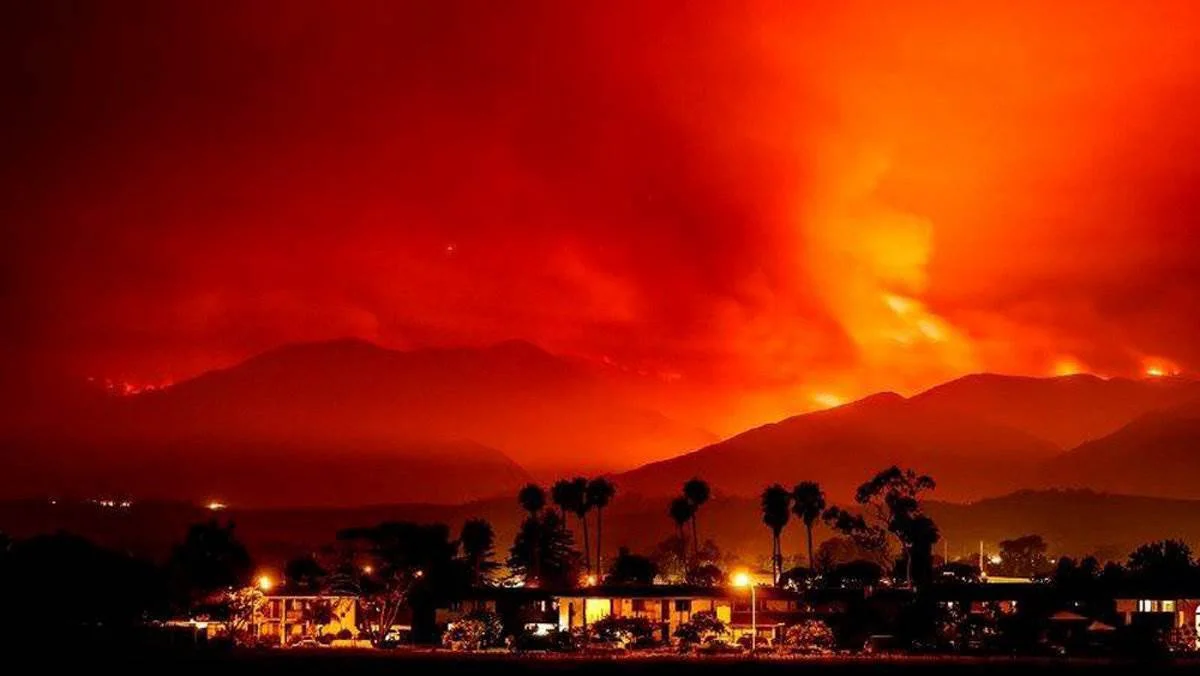Six months after losing her partner John Lamkin, Susanna Starr wrote this remarkable letter to Judith Fein, the executive editor of YourLifeIsATrip.com. We share Susanna’s letter with permission as a chronicle of her journey through loss and a source of honest inspiration and insight.
All tagged loss
When Water Comes, Books Go
When a burst valve results in a flooded study, author Nancy King is left temporarily book-less and bereft.
Finding My Mother in San Miguel de Allende
Only weeks after her mother’s passing, Laurie Gilberg Vander Velde traveled to San Miguel de Allende, Mexico, on a previously scheduled vacation. San Miguel was also the place where twenty-four years earlier her mother had sought refuge from grief and Laurie finds memories of her mother everywhere.
Surviving the Sonoma County Fire and How You Can Help
Early Monday morning on October 9, 2017, Katya Miller was roused from bed and evacuated from her Sonoma County home by raging wildfires. She takes you with her on her frightening journey, and tells how you can help.
A Love Story on a Wall in Toronto
A random encounter on a train to Toronto leads Melanie Kitzan to a bar in Graffiti Alley and the powerful love story of a new friend.
Last Train Home
When Melanie Kitzan traveled by train to visit her dying mother, conversations with random passengers had a surprisingly powerful impact.
The Doors (And Not The Ones You Think)
by Richard Rossner
“There’s a disturbance in the Force.” - Obi-Wan Kenobi
My uncle died today. As soon as I heard the news, I felt the depth of Obi-Wan’s statement. It’s been happening a lot lately. My mother died last June.
by Connie Hand
The sun was bright under a clear azure sky. The birds were merrily singing on that beautiful Summer morning. As I stood by the country road and stared at the house in front of me, my heart was pounding. I was in Nariz, Portugal standing in front of a house that was typical of the area. But this house was special to me because it was the one in which my father was born. Immediately I thought of the stories he used to tell about his childhood in Portugal and his journey to America.

I always loved to hear about far away places and thought that one day I would travel to Portugal to visit those little towns and big cities that Dad talked about in such a vivid way.
The story of my father, Augusto Silva began on June 8, 1911 in Nariz in the district of Aveiro. He was the second of five children born to Maria and Luis Silva, and it was not an easy life. The family farmed their lands and tried to make ends meet. In 1927, Dad decided to emigrate to the United States, and it was a life-altering decision. He researched what was necessary for his journey. It must have been very hard on both of them when his widowed mother gave him her approval to leave. He told me he vowed to go back to visit this sweet woman, and he did keep that vow. He described that visit with tears in his eyes.
He traveled to Lisbon, the capital of Portugal, and worked there for several months until he discovered that Portugal’s emigration quotas were filled for the next several years. He was advised to travel to France to take up residency in Paris. He told me that he worked in Paris doing odd jobs. I remember Dad telling me that Paris was a huge, beautiful city. He said he saw as many sights as he could, but he really couldn’t wait to get to America.
Paul, the young landscaper I had hired to redo my irrigation system asked, “Would you mind if we dug up a small area of the flagstones? It would make laying the new irrigation lines a lot easier.”
by Andrea Campbell
By traveling to find my father's family, I became a bridge between the Soviet Union and the United States. But first, allow me to back up and tell you my story.
 I had been an orphan and spent seven abysmal years in foster homes. When my mother died of cancer, I was only ten. She was 45. It was the worst thing that ever could happen to me, I thought. Unresolved grief walled my heart. For comfort, I turned to my big sister who was as devastated as I. And I looked to my distant, hard working, passionate Ukranian immigrant father for a sense of security. Though he tried to fill my loneliness, he suffered from depression.
I had been an orphan and spent seven abysmal years in foster homes. When my mother died of cancer, I was only ten. She was 45. It was the worst thing that ever could happen to me, I thought. Unresolved grief walled my heart. For comfort, I turned to my big sister who was as devastated as I. And I looked to my distant, hard working, passionate Ukranian immigrant father for a sense of security. Though he tried to fill my loneliness, he suffered from depression.
Two years after my mother died, my father died. I was twelve and alone. Because my sister was separated and planning to divorce, the courts decreed that her’s was a broken home and not a good environment for me. Thus, I was sent to the first foster home. I lost my mother, my father, my home, most of my belongings and close contact with my sister. I was isolated and abandoned.
Somehow, I gathered family photos. As I matured, through hard work (dealing with my own suffering), years of schooling and post-school training, I chose a career in mental health. I found happiness and deep satisfaction as a mother to my daughter.
When my father left Russia in 1915, he was 15 years old. He never saw his family again. I was told he kept a goat in a lot on Prince St., Newark, New Jersey. A noted School of Medicine and Dentistry now stands on that spot. A letter from his mother in 1939 contained a photo of his nephew, and a request to cease communication. At that time, having American family was potentially politically dangerous. The last he heard about them was that they were starving during WWII. When my father died in 1956, he thought they had starved to death or were killed by Nazis.






